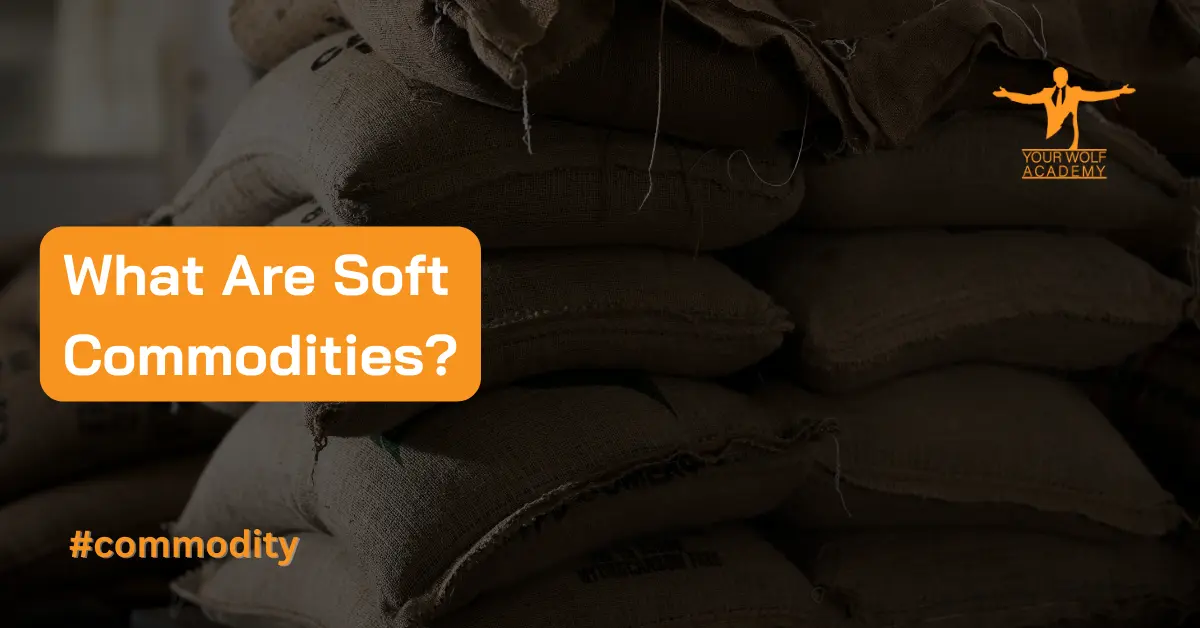Soft commodities are a vital part of the global economy, with millions of people relying on them for their daily needs. From food products like coffee and cocoa to natural resources like cotton and wool, soft commodities play a critical role in our lives. But what are soft commodities, and why should you consider investing in them?
This comprehensive guide will help you understand what soft commodities are and provide insights into investing in this asset class. We will explore the characteristics of different soft commodities, the factors that affect their prices, and the various ways to invest in them.
What Are Soft Commodities?
Soft commodities, also known as agricultural commodities, are products that are grown or produced through natural resources. They are different from hard commodities like gold and oil, which are extracted from the earth.
Soft commodities are typically perishable, and their prices are highly dependent on factors such as weather conditions, supply and demand, and global trade policies.
Some common examples of soft commodities include:
- Grains: Wheat, corn, rice, and soybeans are examples of grains that are widely used for food production and animal feed.
- Livestock: Cattle, hogs, and poultry are examples of livestock that are raised for meat production.
- Dairy: Milk, cheese, and butter are examples of dairy products that are produced from cows and other livestock.
- Softs: Cotton, wool, sugar, coffee, cocoa, and orange juice are examples of soft commodities that are grown or produced through natural resources.

Factors Affecting Soft Commodities
Prices Soft commodity prices are highly volatile and subject to fluctuations based on a wide range of factors. Some of the most significant factors that affect the price of soft commodities include:
- Weather conditions: Natural disasters such as droughts, floods, and hurricanes can have a significant impact on soft commodity prices. For example, a drought in a major wheat-producing region can reduce the supply of wheat and drive up prices.
- Supply and demand: Changes in supply and demand can also affect soft commodity prices. If the demand for coffee increases, for example, but the supply remains the same, prices are likely to rise.
- Global trade policies: Trade policies, tariffs, and other regulations can also affect the prices of soft commodities. For example, if a country imposes tariffs on imports of soybeans, it can reduce the demand for soybeans and lower prices.
- Currency fluctuations: Soft commodity prices are often denominated in US dollars, so fluctuations in currency exchange rates can also affect prices. For example, if the US dollar strengthens, it can make soft commodities more expensive for buyers in other currencies.
Investing in Soft Commodities
Investing in soft commodities can be a profitable way to diversify your portfolio and hedge against inflation. There are several ways to invest in soft commodities, including:
- Futures contracts: Futures contracts allow investors to buy or sell a specific quantity of a soft commodity at a predetermined price and date in the future. This can be a useful tool for hedging against price fluctuations.
- Exchange-traded funds (ETFs): ETFs are investment funds that track the performance of a specific index or asset class. There are several ETFs that focus on soft commodities, providing investors with exposure to this asset class.
- Stocks: Investing in companies that produce or process soft commodities can also provide exposure to this asset class. For example, investing in a coffee company like Starbucks can provide exposure to the coffee market.
- Mutual funds: Mutual funds are investment funds that pool the money of multiple investors to invest in a variety of assets, including soft commodities. These funds are managed by professional fund managers and can provide diversified exposure to the soft commodity market.
- Physical ownership: Investors can also choose to physically own soft commodities, such as buying physical gold or silver or holding agricultural products like wheat or corn. However, physical ownership can be costly and requires proper storage and handling.
Choosing the Right Investment Strategy
When it comes to investing in soft commodities, there is no one-size-fits-all approach. Different investment strategies may work better for different investors based on their risk tolerance, investment goals, and investment horizon. Here are some key factors to consider when choosing an investment strategy for soft commodities:
- Risk tolerance: Soft commodity prices can be highly volatile, which can make investing in this asset class risky. Investors with a low risk tolerance may prefer to invest in ETFs or mutual funds, which provide more diversified exposure to the soft commodity market.
- Investment goals: Investors should also consider their investment goals when choosing an investment strategy for soft commodities. For example, if an investor is looking to hedge against inflation, they may choose to invest in physical gold or silver.
- Investment horizon: Soft commodity prices can be highly volatile in the short term, but may perform well over the long term. Investors with a longer investment horizon may be more willing to take on higher risk for potentially higher returns.
Conclusion
Soft commodities are a diverse and critical part of the global economy. Understanding the factors that affect their prices and the various ways to invest in them can help investors make informed decisions about their portfolios.
Whether investing in futures contracts, ETFs, stocks, mutual funds, or physical ownership, investors should consider their risk tolerance, investment goals, and investment horizon when choosing an investment strategy for soft commodities. With proper research and a well-planned investment strategy, soft commodities can be a profitable addition to any investment portfolio.
Your Wolf Academy offers a range of educational resources to help traders succeed, including free signals, technical analysis, and weekly webinars. Sign up today and get a recommendation for a regulated brokerage company that suits your needs.


